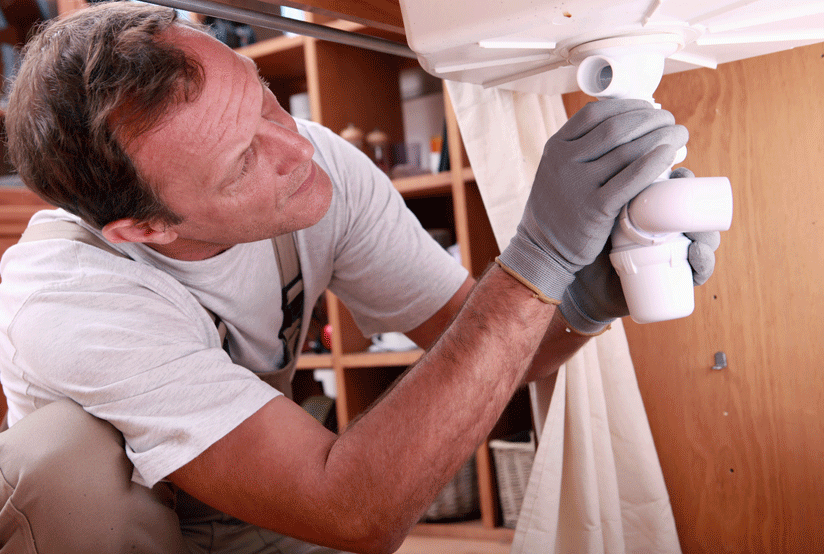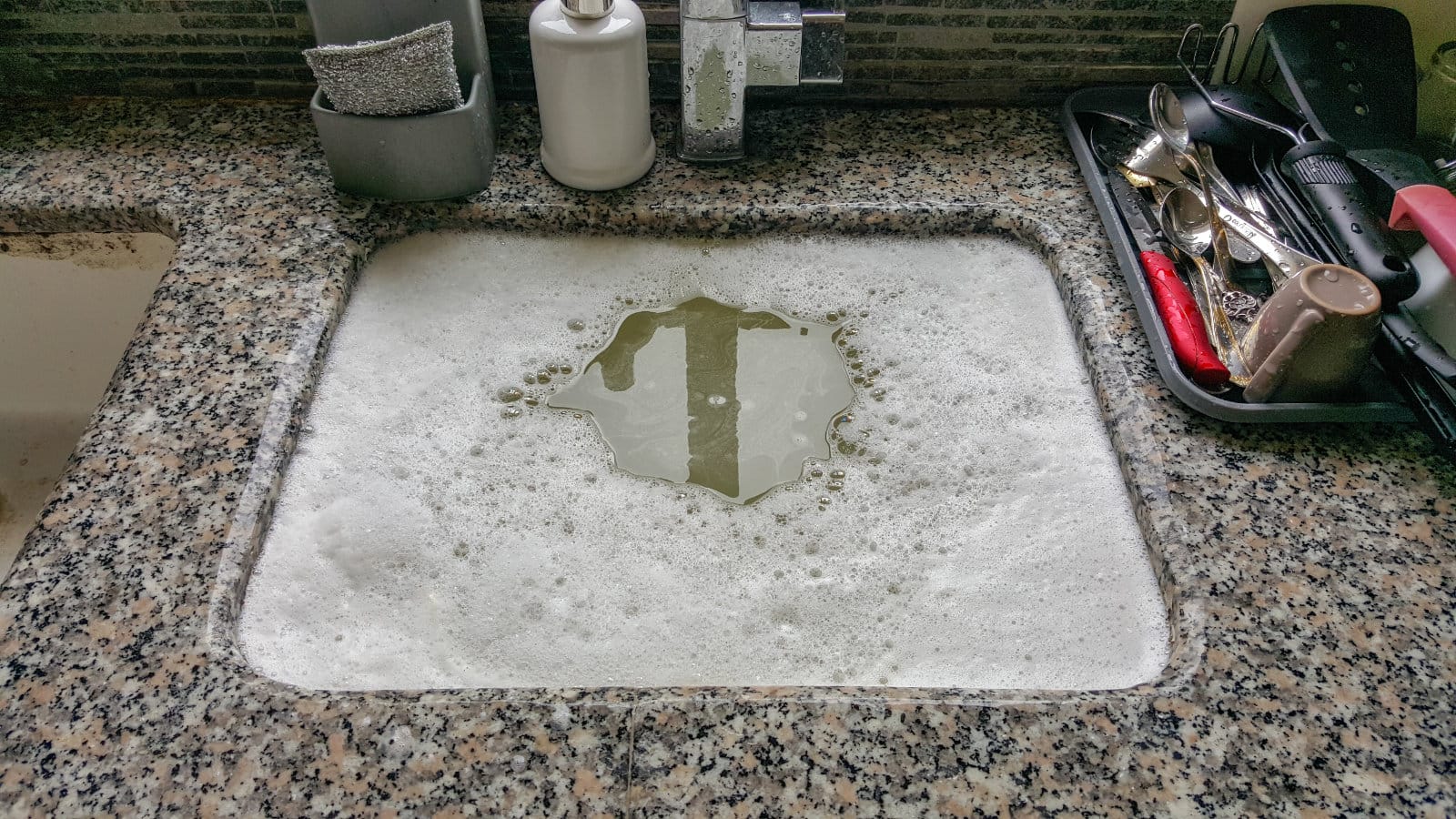Any individual has got his or her own way of thinking on the subject of Solved! How to Fix a Slow Sink Drain.

Introduction
We've all existed: You're cleaning your teeth or cleaning your hands, and you discover the water pooling in the sink. As opposed to swiftly swirling down the drain, it sticks around, transforming your once-refreshing morning regimen into a small swamp scene. A slow-draining sink isn't simply irritating; it's frequently a sign of larger plumbing issues lurking below the surface. The good news is that most slow-draining sinks can be fixed with a little know-how, a couple of fundamental tools, and some perseverance. Prepared to tackle this project head-on? Let's roll up our sleeves and dive right in.
Recognizing the Root Causes Of a Slow-Draining Sink
Before you begin poking around in your pipelines, it helps to recognize what could be causing the slowdown. Understanding the origin makes it less complicated to choose the best repair.
Devices and Materials You'll Need
The right tools make all the distinction. The good news is, you will not require a fully stocked plumbing's van to do the job.
Step-by-Step Overview to Dealing With a Slow-Draining Sink
Currently, let's get into the nitty-gritty. This step-by-step process will direct you with simple methods to restore your sink's water drainage.
Step 1: Get Rid Of and Tidy the Stopper
Commonly, the stopper (that little plug you lower to obstruct water) is the first wrongdoer. Remove it very carefully and clean off any type of hair or gunk caught around its base. Wash it completely prior to putting it back in place.
Step 2: Use a Plunger to Dislodge Debris
Got that plunger all set? Position it over the drain and provide it a few firm pumps. The concept is to develop suction that can loosen up any kind of clog. If you see little bits of debris floating up, you get on the ideal track.
Action 3: Attempt a Drain Serpent or Cable Wall Mount
If the bettor doesn't suffice, it's time to bring out the drain snake. Delicately feed it into the drainpipe and twist as you go. You could feel some resistance-- that's most likely the blockage. Maintain twisting and drawing until you eliminate the blockage. If you don't have a drain serpent, an aligned cord hanger can work in a pinch.
Tip 4: Use a Do It Yourself Drain Cleaner
An all-natural cleaner made from cooking soda and vinegar can break down residual grime. Pour half a mug of cooking soft drink right into the drainpipe, followed by half a cup of vinegar. Allow it fizz for around 15 minutes, after that flush with hot water. This chain reaction frequently does marvels for small blockages.
Tip 5: Reconstruct and Examine the Sink
Put whatever back together and run the faucet. Does the water now swirl down the drain at a reputable rate? If yes, offer on your own a pat on the back. If not, don't despair-- there are still a couple of even more tricks up your sleeve.
Necessary Tools for DIY Repair Works
A plunger is your best beginning point. A tiny, sink-sized bettor creates suction that can displace minor clogs. For even more persistent clogs, a drain serpent (often called a plumbing technician's auger) works marvels. A set of handwear covers, a flashlight, and possibly a pair of safety goggles are also helpful.
Advised Cleaning Solutions
Light dish soap and warm water can assist break down greasy build-up. A blend of cooking soda and vinegar is a tried and true natural remedy, and chemical cleansers offer a more green approach. Keep chemical drainpipe cleansers as a last resort, as they can be harsh on your pipes.
Common Culprits Behind Slow Drainage
So, what's clogging things up? Generally, it's a mixture of everyday particles-- think hair, soap scum, tooth paste deposit, and leftover food particles. With time, these tiny bits gather and hold on to the pipe wall surfaces, slowly narrowing the flow and making it harder for water to pass through. In many cases, natural resource from hard water can additionally contribute to the crud, producing the perfect storm for stubborn blockages.
When is it Time to Act?
If you observe the water draining pipes slower than typical, it's an excellent idea to interfere earlier instead of later on. Waiting too long can cause finish blockages, undesirable smells, or even pipe damage. If the water takes greater than a couple of secs to clear out after switching off the tap, consider it a red flag and get ready to put on your DIY hat.
Safety First: Preventative Measures and Preparations
Before you launch into unclogging mode, consider safety and security. You're handling possibly unclean water and particles, so slip on a pair of gloves. If you're utilizing chemical cleansers, make sure the area is well-ventilated and adhere to the directions on the tag.
Safety Equipment and Office Arrangement
Set some old towels or dustcloths around the sink location to capture dashes. Eliminate any type of things that might enter your method, like soap dispensers or toothbrush owners. See to it you have great lights-- get a flashlight if required.
Alternate Methods for Stubborn Clogs
Not all blockages are produced equivalent. If your sink still declines to coordinate, think about these different solutions.
Baking Soda and Vinegar Method
We currently discussed this, but it's worth noting once again. This mild, green approach is safer than chemical cleaners and usually quite effective.
Chemical Drainpipe Cleansers
Enzyme-based cleansers make use of all-natural bacteria to absorb organic matter. They're a superb selection if you're wanting to stay clear of severe chemicals. Just remember, they may take a bit longer to function their magic.
Chemical Drainpipe Cleansers: Pros and Cons
Chemical cleansers can blast through challenging blockages fast, yet they're not without disadvantages. They can generate warmth and fumes, damage pipelines if utilized exceedingly, and position ecological dangers. Utilize them sparingly, and constantly follow the instructions carefully.
Safety Nets to Maintain Your Sink Flowing
Prevention is the best treatment. By adopting a few basic habits, you can keep your sink from decreasing to begin with.
Regular Cleansing Habits
Clean down the sink basin and fixture location frequently. Eliminate hair or food fragments before they have an opportunity to wash down the drain.
Staying Clear Of Damaging Compounds Down the Drain
Think twice prior to dumping coffee premises, oil, or fibrous veggie scraps down the sink. These wrongdoers hold on to pipe walls, developing clogs in time.
Regular Upkeep Checks
Arrange a fast month-to-month evaluation. Run warm water through the sink for a couple of minutes, taking notice of the flow. If it seems slow, act quickly prior to it becomes a full-on obstruction.
When to Call a Specialist Plumbing Professional
Sometimes, despite how tough you try, that obstruct just won't move. That's when it's time to generate the pros.
Indicators That Indicate a Much More Major Concern
If your sink drains gradually despite multiple efforts, or if you notice water supporting in other components (like your shower or bathroom), you might have a more significant pipes concern prowling much deeper in the system.
Balancing Do It Yourself Initiatives with Expert Assistance
While DIY can save you cash and supply a feeling of achievement, there's no pity in calling an expert. A professional plumbing technician can analyze your whole plumbing arrangement, making sure there's no underlying damage or lasting issue that can cost you a lot more later on.
Comparing Costs and Long-Term Solutions
Prior to deciding, consider the big picture. A cheap, quick fix may fix the problem briefly, but investing in an extra permanent remedy could conserve you cash and tension in the future.
Weighing the Costs of Do It Yourself vs. Specialist Fixes
DIY fixes usually cost little more than the cost of a plunger or a bottle of baking soda. Professional services, on the other hand, come with a price tag but may protect against repetitive concerns and pricey fixings later on.
Purchasing High Quality Fixtures and Upgrades
If your sink's layout adds to regular blockages, it might be worth updating to higher-quality components or changing the pipes layout. Consider this an investment in your home's performance and convenience.
Final thought
A slow-draining sink can feel like a small irritability, however it's commonly an indicator that your pipes needs a little TLC. By recognizing the source, using the right tools and techniques, and dedicating to simple preventive measures, you can maintain your sink moving freely. And when all else stops working, never ever wait to contact a specialist-- your home's pipes is worth the financial investment in treatment and upkeep.
4 Tips to Fix a Slow Draining Sink
Removing the Pop-Up
This is a great place to start when it comes to troubleshooting a slow draining sink. If your sink has a pop-up, carefully take it out and remove debris that has built up around the tool. This will also allow you to see if there are any significant blockages in the drain that you can pull out on your own to help clear up the issue.
Use a Zip-It Tool
Like a snake for a large drain, a zip-it tool helps clear out any debris or hair from a sink drain. A tool like this can be used with a drain that pops out or not as it s thinner than most snake-like tools.
Use a Drain Cleaner
Whether making an at-home cleaner or buying a solution at the store, this is a common fix many turn to when it comes to a slow draining sink. There are several options available for purchase at local supermarkets, but for those who prefer to create their own solution, one of the most common is the following.
How to Unclog a Drain Naturally
Pour boiling water down the drain Pour cup of baking soda down the drain Pour cup of vinegar down the drain Wait 10 minutes Pour boiling water down the drain again Turn on the hot water faucet to clear out the solution Use a Plunger
As a worst-case scenario option, a plunger may be a good option for those who are still struggling to get debris out of their drain. This could be especially useful if there is a large item that you suspect may be significantly stuck down the drain.
https://www.abaileyplumbing.com/blog/2021/august/4-tips-to-fix-a-slow-draining-sink/

As a person who reads on , I was thinking sharing that piece of content was mandatory. Loved our article? Please share it. Help somebody else check it out. I cherish your readership.
Prices & Booking